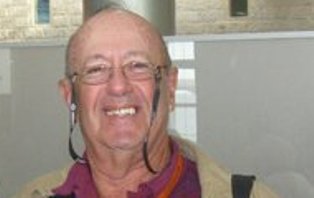A certain gentleman, living in Vancouver turns to me for an opinion whenever it happens that an event in Israel is reported there and creates a negative response from people there and in other foreign countries.
He's looking for comfort, he wants to be assured that Israel isn't doing anything to arouse ire.
Well, surrounded by nations that never miss an opportunity to criticize Israel in the hope of gaining support of the world nations for their demands against Israel, everything Israel does is going to be presented as negative.
Certainly when Israel makes demands that clash head on with the demands of our neighbors there will be loud reportage and vehement responses.
They demand territory from Israel and Netanyahu declares that new settlements are going to be built exactly on the territory they're demanding.
Such a declaration invites a head on clash. I personally tend to avoid head on clash situations, like when I drive, when my wife makes demands, or my children etc. I give in and have been branded as weakling, and I don't mind this because I like to avoid clashes, it makes my life more pleasant.
But one can't compare a private individual with a state.
I hate conflict, it's a very unpleasant way to live, but as an individual I have the prerogative of avoiding conflict, a state does not have that prerogative, so Netanyahu is doing what has to be done by a sovereign state, he is stating our case, setting out our objectives clearly, for all the world to see, especially our enemies, but also our friends.
Of course the world focuses its attention on Israel, its always seen Israel as the cause of the Arab's problems, it can't get out of that mindset,
Arabs never tried to avoid clash, as the world is demanding from Israel, in fact like all states, have always done, they have deliberately sought clash, they don't miss an opportunity.
He's looking for comfort, he wants to be assured that Israel isn't doing anything to arouse ire.
Well, surrounded by nations that never miss an opportunity to criticize Israel in the hope of gaining support of the world nations for their demands against Israel, everything Israel does is going to be presented as negative.
Certainly when Israel makes demands that clash head on with the demands of our neighbors there will be loud reportage and vehement responses.
They demand territory from Israel and Netanyahu declares that new settlements are going to be built exactly on the territory they're demanding.
Such a declaration invites a head on clash. I personally tend to avoid head on clash situations, like when I drive, when my wife makes demands, or my children etc. I give in and have been branded as weakling, and I don't mind this because I like to avoid clashes, it makes my life more pleasant.
But one can't compare a private individual with a state.
I hate conflict, it's a very unpleasant way to live, but as an individual I have the prerogative of avoiding conflict, a state does not have that prerogative, so Netanyahu is doing what has to be done by a sovereign state, he is stating our case, setting out our objectives clearly, for all the world to see, especially our enemies, but also our friends.
Of course the world focuses its attention on Israel, its always seen Israel as the cause of the Arab's problems, it can't get out of that mindset,
Arabs never tried to avoid clash, as the world is demanding from Israel, in fact like all states, have always done, they have deliberately sought clash, they don't miss an opportunity.
